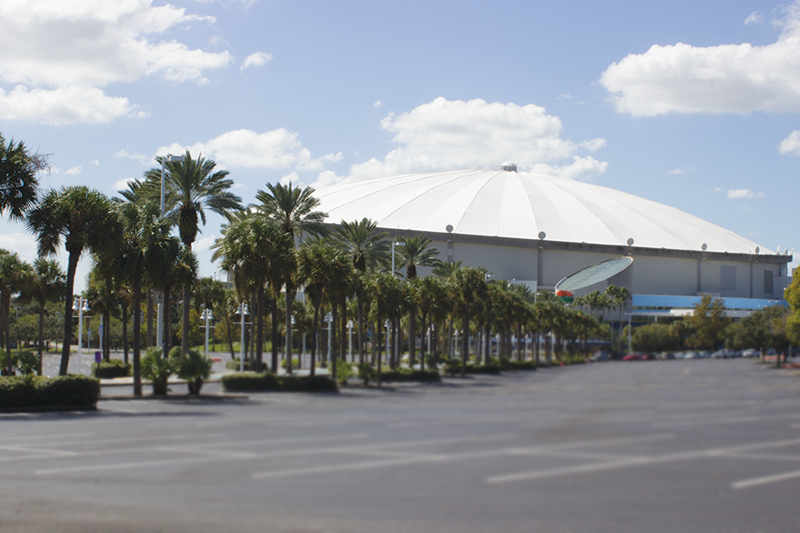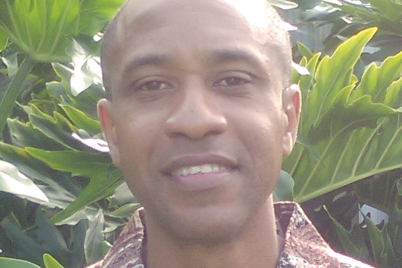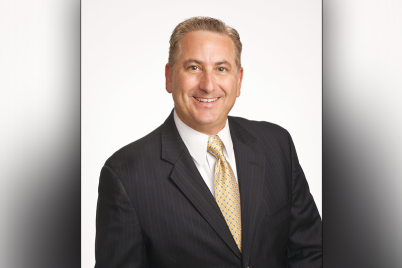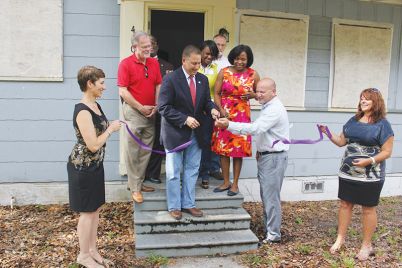The community has a chance to weigh in on the Tropicana Field redevelopment Thursday night at the Coliseum starting at 6 p.m.
UPDATED: 12:18 a.m. on 8 April 2021
FRANK DROUZAS, Staff Writer
ST. PETERSBURG — As the future of the Tropicana Field site is ready to take shape, four shortlisted developers from across the country presented their distinct visions directly to the public in a virtual meeting on April 5.
Monday’s virtual meeting was the first of three, with in-person meetings being held tonight and Thursday at the Coliseum starting at 6 p.m.
Representatives from Midtown Development, Portman Holdings/Third Lake Partners, JMA Ventures/Sugar Hill Community Partners, and Unicorp National Developments were given 15 minutes to present their plans for the 86-acre property.
City Development Administrator Alan DeLisle facilitated the event, and Mayor Rick Kriseman provided opening remarks, noting that “this site has a long, deep history in this city,” and this isn’t the first time the public has been engaged regarding its future.
“Many promises were made — promises that remain unfulfilled,” the mayor said.
Kriseman is referring to the Gas Plant neighborhood that was razed in the early 1980s with the promise of jobs and opportunity for the Black community. The Gas Plant redevelopment caused 285 buildings to be bulldozed; more than 500 households, nine churches had to be relocated, more than 30 businesses moved or closed, and even Davis Elementary School, the first black primary school in St. Pete.
“It is because of the history and unkept promises that the public, our residents, our business owners, and any other interested stakeholders must be involved every step of the way until the last ribbon is cut on this site,” Kriseman explained.
The mayor said the redevelopment is a generational endeavor that will take many years for the site to be fully developed, leading to jobs, housing, and green space.
Since it is still unclear if the Tampa Bay Rays will remain in St. Pete once their lease agreement expires in 2027, each developer had to submit two different plans — one with a stadium and without.
Midtown Development
“There are as many diverse neighborhoods in this city as any other really large city, and that diversity should be reflected at the Trop,” said Randy Morton of the Midtown Development team.
He pointed out that as it sits amidst distinct neighborhoods, the Trop site is a place looking for an identity, and building parks and streets would be the place to start.
“First job is to take Booker Creek and make it magnificent and marry it with Campbell Park, and expand the influence of the creek,” Morton said.
He plans to build a greenway east all the way to the waterfront, diagonally crisscross the creek, come through the Trop site, and extend west to the Deuces and the Warehouse Arts District, and 20 or 30 blocks to the south.
“When our streets are put in place, it’s going to be a little like mending nets,” he said. “And we will knit back together the city, and there’ll be a new neighborhood or three or four neighborhoods on the Trop site that will add to the inventory of all of these fantastic places.”
Morton envisioned a neighborhood that’s “very walkable with abundant open spaces” and planned to expand Booker Creek to include water terraces and even introduce retail and dining establishments on small islands in the middle of the creek. The greenway will have eight linked parks, including arts parks and dog parks.
“We intend on taking the Heritage Trail that’s on 9th and 22nd and extending that throughout the entire Trop site, over the freeway and even through Campbell Park,” he said, “and use that as a place to commemorate great people who have been in the district — events, places, buildings, churches.”
The plan also included small businesses and networking areas, micro-retail for entrepreneurs and artists, popup retail, and affordable housing integrated into neighborhoods and not stand-alone. The design process will “never stop getting community outreach from tip to stern,” he added.
“We’ll use your history as a guide for our design of your future,” Morton said.
Portman Holdings/Third Lake Partners
Eric Antalek, an architect and principal at HKS, part of the Portman Holdings/Third Lake Partners team, put Booker Creek at the center of the plan, calling it the “catalyst for redevelopment of the street grid” and a viable entity.
“We also want to reinvent the street grid there to bring in some of the community from south St. Petersburg as well as from the Warehouse Arts District on the west,” he said. “We believe that the reconnection there will help the community grow over time.”
Shelby Morris of HKS said that his group wants to engage local artists to develop the history of St. Pete so that it can be part of the design.
“It’s more than just the artwork on the streets,” he said. “It’s cultural programs, it’s the event spaces, it’s the entertainment, and truly creating a 24/7 live-work-play environment where everybody through St. Pete and the region will come.”
The group’s ballpark plan seamlessly integrates the stadium with retail, hotel, and residences, while the non-ballpark scenario includes an extended Warehouse Arts District with additional office and residential components.
JMA Ventures/Sugar Hill Community Partners
A history walk filled with memorials and historical markers that cuts diagonally through the site is part of the vision of JMA Ventures/Sugar Hill Community Partners. It would serve as a critical connection back to downtown, the Warehouse Arts District, Deuces Live, Campbell Park and Melrose. Anchored at either end of the history walk are two civic spaces, and development along Booker Creek is also key for this group.
David Carlock, development manager for JMA Ventures/Sugar Hill Community Partners, said the plan would create more than 30,000 construction jobs and wants to ensure that south St. Pete residents receive the maximum benefits of those jobs. In this plan, at least 35 percent of residential units would be affordable housing with a cap of 80 percent area medium income (AMI), at least 10 percent of residential units would be workforce housing at 100 percent to 120 percent AMI and 100 affordable condo homes would be for sale.
Unicorp National Developments
Chuck Whittall, president and CEO of Unicorp National Developments, said he believes communities come together through parks. His plan, nicknamed “Petersburg Park,” calls for 37 acres of park space.
“What the park will do is not only benefit the 86 acres where the stadium currently sits, it’s going to benefit the entire community,” he said.
He added that, unlike other developers, he doesn’t seek to create different districts. Even though his plan includes affordable housing, workforce housing, and luxury housing, “but we don’t want it to be distinguished as that; we want it all to mix in together.”
“I’ve seen some of the proposals create a district for this and a district for that, “Whittall said. “What we’re trying to do is create a community where everybody is together; everybody participates together in the community.”
Collaboration through the community is critical and creates the ideal vision, he said.
Kriseman plans to make his final selection as soon as next month. Make sure you have a chance to ask questions and voice your concerns by attending a meeting tonight or Thursday night at the Coliseum starting at 6 p.m.
Click here to read all four proposals in detail and view the timeline of events. Social distancing guidelines will be in place and masks will be required for in-person meetings.








